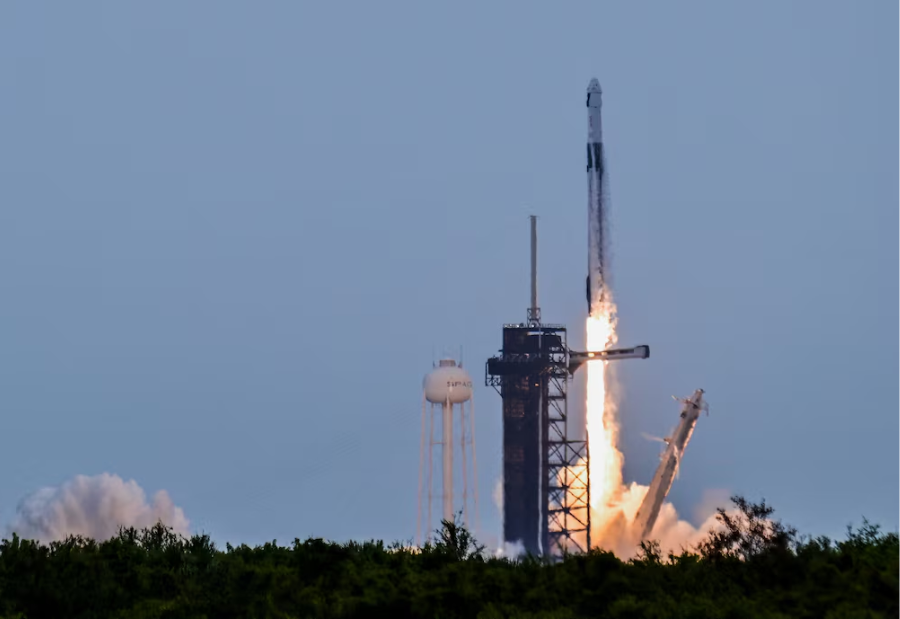SpaceX successfully launched an international team of four astronauts to the International Space Station on Friday as part of NASA’s Crew-11 mission. The launch took place from NASA’s Kennedy Space Center in Florida at 11:43 a.m. ET (1543 GMT), following a delay due to poor weather conditions the previous day.
The crew includes NASA astronauts Zena Cardman and Michael Fincke, Russian cosmonaut Oleg Platonov, and Japanese astronaut Kimiya Yui. They lifted off aboard SpaceX’s Dragon capsule, mounted on the Falcon 9 rocket, and are expected to reach the ISS after a 16-hour journey, arriving at around 3 a.m. (0700 GMT) on Saturday.
This mission could mark the beginning of a new schedule for crew rotations, with the duration potentially extending to eight months instead of the usual six. NASA said this adjustment aims to better align US and Russian crew rotation timelines. Officials will closely monitor the health and performance of the Dragon capsule while it remains docked to the ISS before finalising the extended stay.
Crew-11 is part of the ongoing partnership between international space agencies. The mission reflects continued cooperation in space exploration despite wider political tensions. Thursday’s launch attempt was cancelled due to unfavourable weather, but conditions improved on Friday for a successful liftoff.
A senior Russian delegation, including Dmitry Bakanov, head of Russia’s space agency, had attended Thursday’s launch attempt. It is unclear if they remained in Florida for Friday’s event. Their visit marked the first in-person meeting between the leaders of NASA and Roscosmos since 2018.
During the meeting, acting NASA administrator Sean Duffy and Bakanov discussed ongoing collaboration aboard the ISS and possible future cooperation on lunar missions. Although no new agreements were made, the discussion highlighted the importance of space as a rare area of active engagement between the two countries.
However, Russia’s 2022 invasion of Ukraine has led to wider isolation from Western space programmes. While ISS cooperation continues, Russia has chosen to work with China on lunar exploration rather than join NASA’s Artemis programme.
Also read: Viksit Workforce for a Viksit Bharat
Do Follow: The Mainstream formerly known as CIO News LinkedIn Account | The Mainstream formerly known as CIO News Facebook | The Mainstream formerly known as CIO News Youtube | The Mainstream formerly known as CIO News Twitter |The Mainstream formerly known as CIO News Whatsapp Channel | The Mainstream formerly known as CIO News Instagram
About us:
The Mainstream formerly known as CIO News is a premier platform dedicated to delivering latest news, updates, and insights from the tech industry. With its strong foundation of intellectual property and thought leadership, the platform is well-positioned to stay ahead of the curve and lead conversations about how technology shapes our world. From its early days as CIO News to its rebranding as The Mainstream on November 28, 2024, it has been expanding its global reach, targeting key markets in the Middle East & Africa, ASEAN, the USA, and the UK. The Mainstream is a vision to put technology at the center of every conversation, inspiring professionals and organizations to embrace the future of tech.




